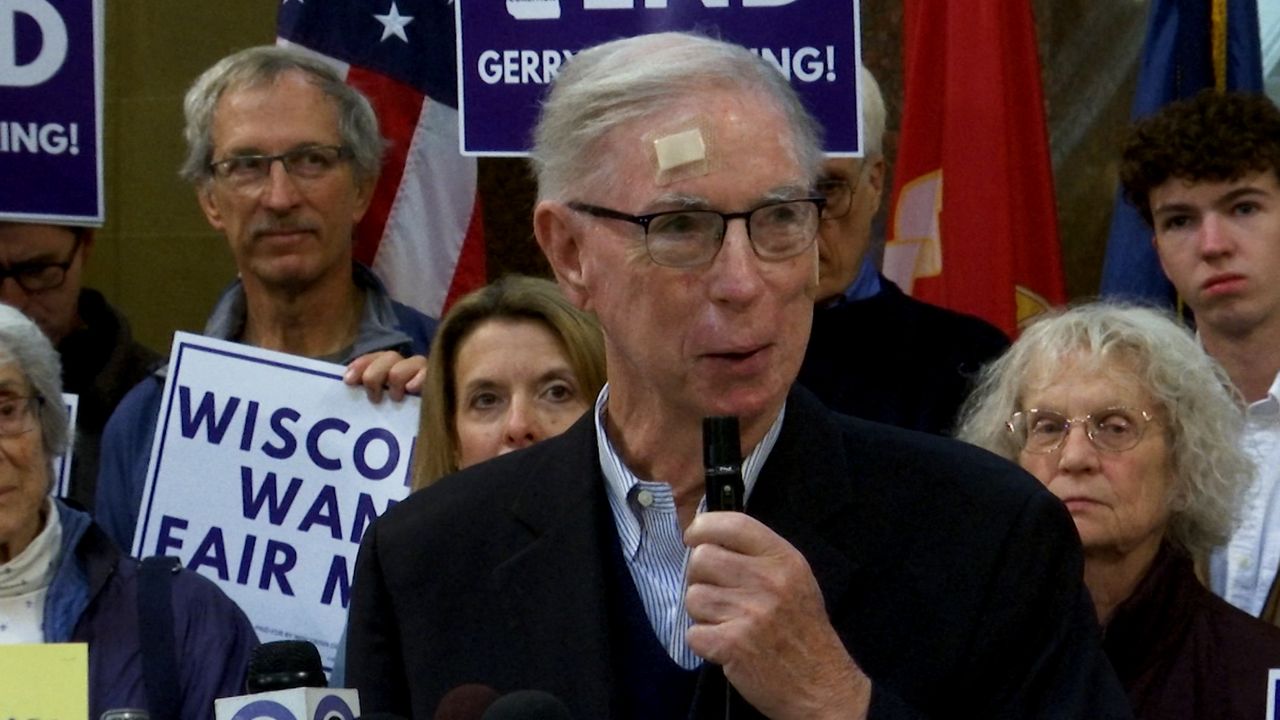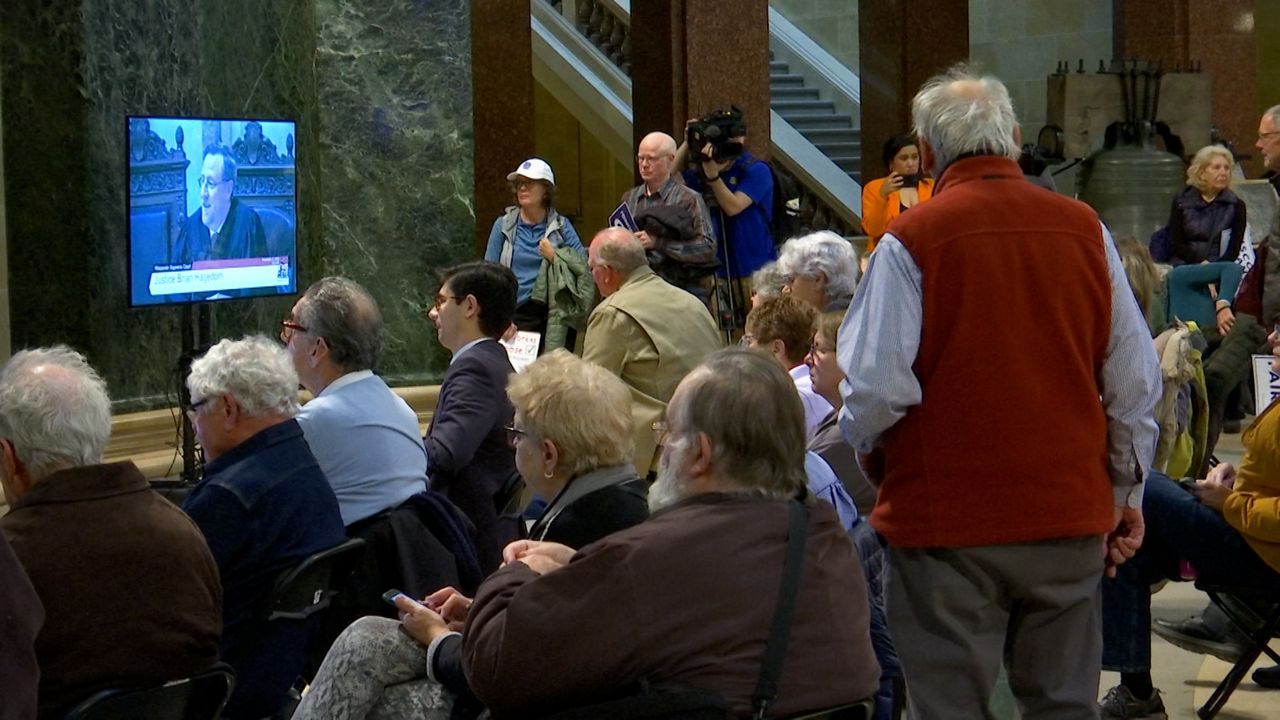MADISON, Wis. — Justices on the state’s highest court heard oral arguments Tuesday in a case that could overturn Wisconsin’s legislative maps drawn by Republicans.
Those same boundaries earned the blessing of the conservative-leaning Wisconsin Supreme Court last year. However, since then, the ideological balance of the court has flipped in favor of liberals 4-3.
Going into Tuesday, the court was expected to consider two big questions: Are the current maps unconstitutional because of boundaries that aren’t connected, and did the court violate the separation of powers when it ruled in favor of the Republican-drawn lines back in 2022, despite a veto from Democratic Gov. Tony Evers.
Rallying in the Rotunda while oral arguments proceeded, voters who demanded fair maps were joined by former State Sen. Tim Cullen, a Democrat and longtime proponent of ending partisan gerrymandering, which he believes amounts to an abuse of power.

“I can take you to Massachusetts and Rhode Island, Illinois, and show you a Democratic gerrymander,” Cullen told the crowd. “Here in Wisconsin, in Michigan, North Carolina, a Republican gerrymander. What do they all have in common? One party has complete control.”
Inside the courtroom, conservative justices questioned the timing of the lawsuit, especially after the ideological balance of the state’s high court flipped with the election of liberal-leaning Justice Janet Protasiewicz earlier this year.
“Your law firm participated in the litigation in Johnson. Where were your clients? Why did they wait two years,” Justice Rebecca Bradley asked the lawyer who appeared on behalf of the petitioners.
“There was no possible way the Clarke petitioners could have known what their legal claims were on October 6, 2021, when the map was not put into effect for months later,” Mark Gaber from the Campaign Legal Center responded.
Republican Assembly Speaker Robin Vos previously threatened to impeach Justice Protasiewicz before she ever heard a case. For now, he has backed off but could proceed if she strikes down the maps.
Respondents in the lawsuit also used the outcome of the election to poke holes in the arguments made by petitioners on behalf of Democrats.
“They waited exactly one day after this court’s membership changed to file their unprecedented collateral attack,” Taylor A.R. Meehan, who appeared for the respondents, told the justices. “They have no answer for their delay. They have no answer for the limits to stop the next collateral attack and the next collateral attack.”
Democrats hope the court will strike down the current maps, draw new ones instead, and make all 132 state lawmakers run for office in 2024 based on those new boundaries.
However, the Legislature argues if that happens, new maps should not be used before the 2026 election.

“The islands in the Madison area can be fixed within Madison, and the island in the Beloit area, as best I can tell, can be fixed with one ward in the city of Beloit, and that’s no reason to redraw the entire state map,” Meehan explained.
Earlier this month, Jonathan Miller with the Public Rights Project filed a brief in support of the gerrymandering challenge on behalf of 19 local officials from 14 different cities across Wisconsin.
“We heard a lot of different arguments about separation of powers, about standing, about remedy, but I actually think this is a very straightforward case,” Miller said. “The districts are not contiguous, they are not connected, and that’s illegal under Wisconsin law, and so the maps need to be withdrawn.”
The court gave each side 80 minutes for oral arguments on Tuesday. Normally, parties get a half-hour to make their case.
A ruling from the court is expected in early 2024.



